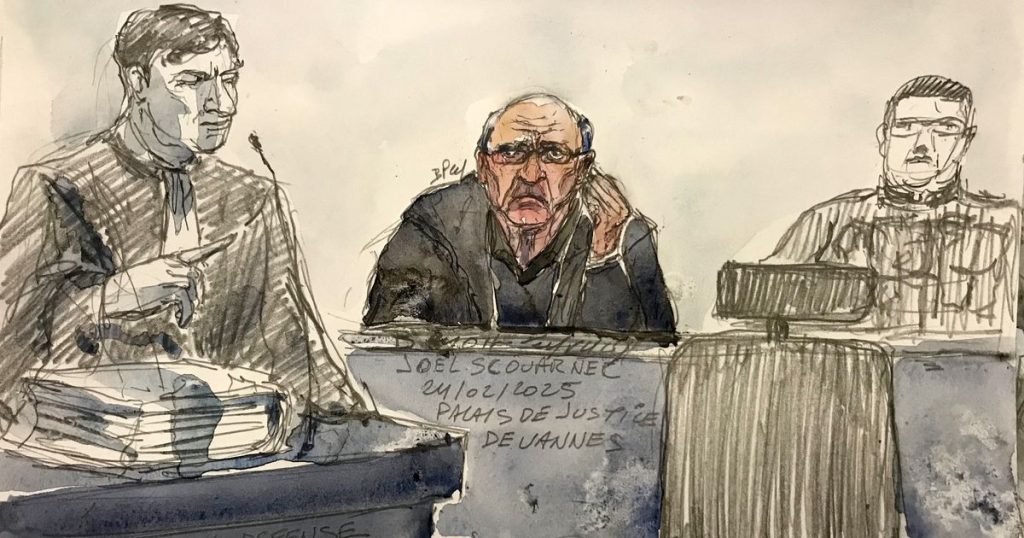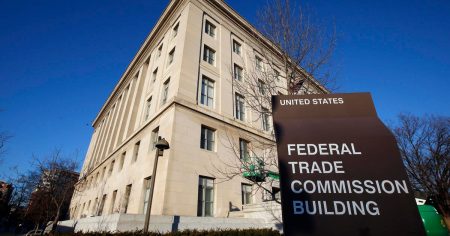Introduction: The Case of Joël Le Scouarnec
Joël Le Scouarnec, a 74-year-old former surgeon, stands trial in Vannes, Brittany, facing allegations of rape and sexual abuse involving 299 victims, predominantly children who were once under his care. This trial, spanning four months, marks a pivotal moment in France’s reckoning with sexual abuse, particularly within institutional settings. The case is not just about individual culpability but reflects broader societal and systemic failures. Le Scouarnec, already serving a 15-year sentence from a 2020 conviction for similar offenses, now confronts the possibility of an additional 20 years if found guilty. His lawyer, Maxime Tessier, has acknowledged his client’s responsibility for most of the charges, signaling a partial admission of guilt. The trial underscores a pattern of abuse spanning decades, with many victims now breaking their silence, their stories offering a harrowing glimpse into a life of trauma and silence.
The Significance of the Trial in France’s Fight Against Abuse
This trial emerges amidst a growing movement in France to dismantle taboos surrounding sexual abuse, epitomized by the case of Gisèle Pélicot. Her courage in exposing her ex-husband and others involved has sparked a national conversation, pushing for legal reforms and greater support for victims. The Le Scouarnec case began in 2017 after a six-year-old neighbor accused him of molestation, leading to the discovery of over 300,000 photos and 650 video files, along with incriminating notebooks. These materials, coupled with his previous convictions in 2005 and 2020, paint a chilling portrait of predation. The trial is not just a legal proceeding but a moment for France to confront its failure to protect the vulnerable, with child protection groups advocating for tougher legal frameworks to prevent future abuses.
Unveiling the Evidence: A Chilling Portrait of Abuse
The evidence against Le Scouarnec is damning. His notebooks detail his actions, self-identifying as a pedophile and meticulously chronicling his abuse. The seizing of vast amounts of obscene material further corroborates the allegations. This documentation, alongside victim testimonies, reveals a calculated predator who exploited his position of trust. The trial delves into crimes spanning 25 years, involving 158 men and 141 women, with the average victim age being 11. Amélie Lévêque, a victim, recalls her trauma post-operation, highlighting the lasting psychological impact. Her story, and others like it, illustrate the profound effects of Le Scouarnec’s actions, challenging the silence and denial that enabled his abuse.
Victims’ Voices: The Lasting Impact of Trauma
The victims’ testimonies are central to the trial, offering poignant insights into their suffering. Many have only recently found their voices, some after years of buried memories. Lévêque’s revelation upon discovering her name in Le Scouarnec’s notebooks depicts the turmoil of confronting suppressed trauma. Her descent into depression and feelings of isolation echo the experiences of many, underscoring the necessity of support and justice. These narratives humanize the statistics, reminding us of the flesh-and-blood individuals behind the allegations. Their courage in testifying is a testament to resilience, offering hope for healing and justice.
A Timeline of Abuse and Institutional Failures
Le Scouarnec’s history of abuse stretches back to the 1980s, with some cases barred by the statute of limitations. Notably, despite a 2005 conviction for child abuse material, he continued practicing, a lapse in oversight permitting further harm. His conviction in 2020 for assaulting four children, including nieces, further highlights systemic failures. The trial examines crimes from 1989 to 2014, revealing an environment where abuse thrived unchecked. This timeline serves as a stark reminder of the need for accountability and vigilance in positions of trust, urging reforms to prevent future atrocities.
Conclusion: A Call for Systemic Change
The Le Scouarnec trial is a catalyst for change, challenging France to confront its handling of sexual abuse. Beyond individual guilt, it exposes failures in protecting vulnerable populations, particularly in healthcare. The trial’s impact lies in its potential to influence policy, encouraging stronger safeguards and support systems. The voices of Le Scouarnec’s victims are a powerful call to action, urging a society to no longer turn a blind eye to abuse. As France grapples with this case, it must consider whether this trial will be a turning point in its approach to justice, support, and prevention, ensuring that such atrocities are never repeated. The journey towards healing and justice is long, but it begins with accountability and systemic change.















